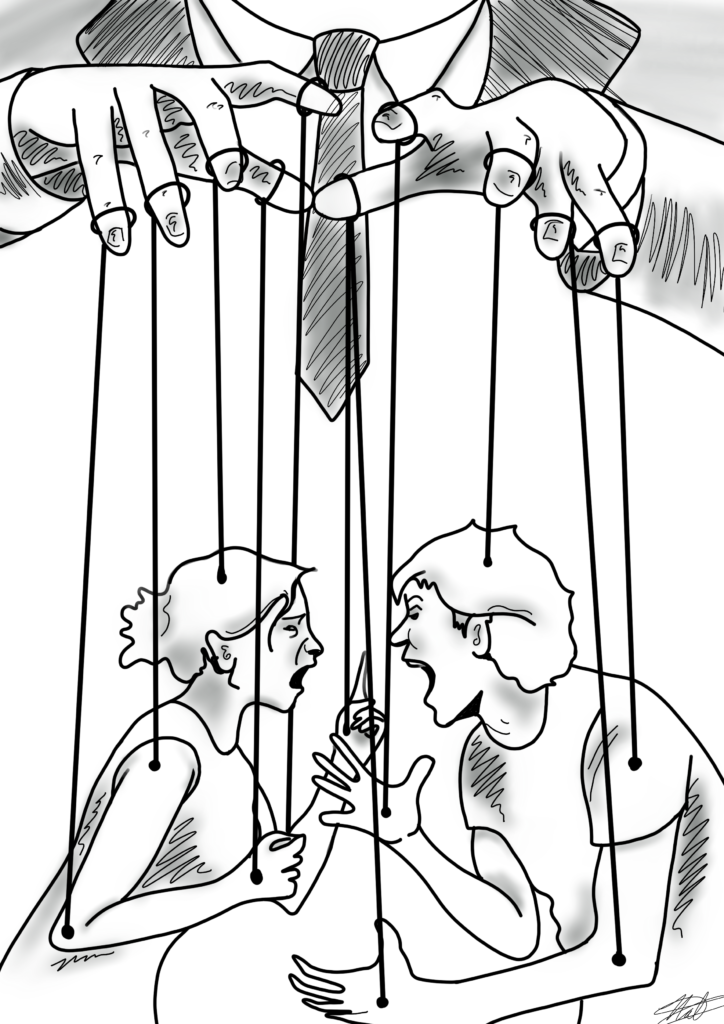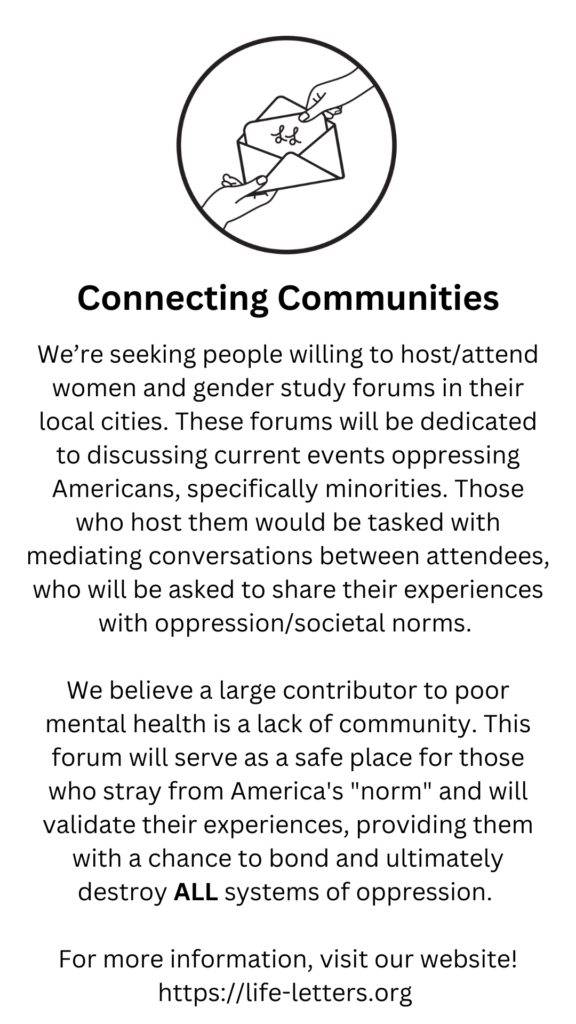
Origin
The founder, Grace Carney, attends Michigan State University and was off campus when the shooting in February 2023 occurred. The gunman–who was mentally ill and off his medication at the time–had an encounter with several people prior to the shooting, including the cops. He also left a note saying “they hate me”, “fuck all you rasist motherfuckers”, and “every where I go people treat me different.” But despite clearly needing help, this mans mental state went unnoticed and uncared for until a community suffered the consequences.
Unfortunately, this is not uncommon in America. In such a virtual and individualistic society, we find ourselves drifting further and further away from one another. This means those who are mentally ill and without resources don’t have access to the help they need, especially in a society that doesn’t cater to them. Our systems of oppression further alienate them, putting those who don’t subscribe to societal norms on the outskirts. It is here that people will stay stuck until finding the resources to empower their identities and validate their experiences.
This is the intent behind Connecting Communities. We believe that by taking the time to listen to one anothers stories, we’ll not only come together to fight all systems of oppression but find support in each other while doing so. We have tried separately to fight oppression against group identities, but in order to make a change we need to be fighting together. The system that’s set up to be racist is the same system that’s sexist, homophobic, and biased toward anyone who doesn’t subscribe to the societal norm (aka the majority of our country). These forums are a way to connect over our shared struggle and ultimately overcome it.

What we do
– Discuss the daily prompt. Be sure to incorporate your perspective and experiences into your response, and don’t be afraid to address any oppression you have faced.
– Educate one another. Your voice is valuable and vital to this conversation, and it addresses issues within American society that other people may not be aware of.
– Destigmatize social identities. Because the American social norm only applies to a specific social identity (the masculine, affluent, white, heterosexual, cis-gendered male), most people–if not all–stray from the norm. Acknowledging the false stereotypes created to benefit capitalism and the patriarchy allows us to deconstruct them, and hearing experiences from those with that social identity humanizes those belonging to them and encourages respect and open-mindedness.
– Raise awareness. As more social issues arise, it’s important to be mindful of them in every aspect of ones life. It’s in this way that we promote important issues that oppress those who are unable to subscribe to the social norm.
– Create connections. In an increasingly individualized society, we find ourselves more and more disconnected from neighbors. This forum is an opportunity to bond with those in your local community, and to offer and receive emotional support.
Guidelines
We find one another not in our similarities, but in our differences.
- Respect people and their turn to speak. When one person is talking the others should be quietly listening. We encourage you to add to what someone is saying, but first wait until they are finished.
- Keep an open mind. Remember that your opinion is just that; your opinion. It’s going to look different from the opinions of those who surround you because we differ in social identity, so it’s important to respect them and refrain from immediately writing them off as they provide us with an opportunity to learn, grow, and become more connected to our community.
- Share authentic experiences. In a society where media aims to please people instead of reflecting a variety of genuine, real-life stories, it is extremely important to share those stories with one another in order to keep them alive. The best way to accomplish this is to be vulnerable in your responses.
- Do not speak for others. While we encourage people to address potential and existing social issues, there is a difference between pointing out injustice and being the victim of injustice. For example, a white person should not discuss the way they think a black person would be impacted by a piece of media, but should point out the potential racism in said media.
- Speak your truth. Even if no one agrees with you, nothing is accomplished by staying within the boundaries set for us. We encourage you to have confidence in your views and opinions, and to share them with your peers.
- No judgement. Everyone here should be trying to learn, which requires patience and kindness from all parties.
